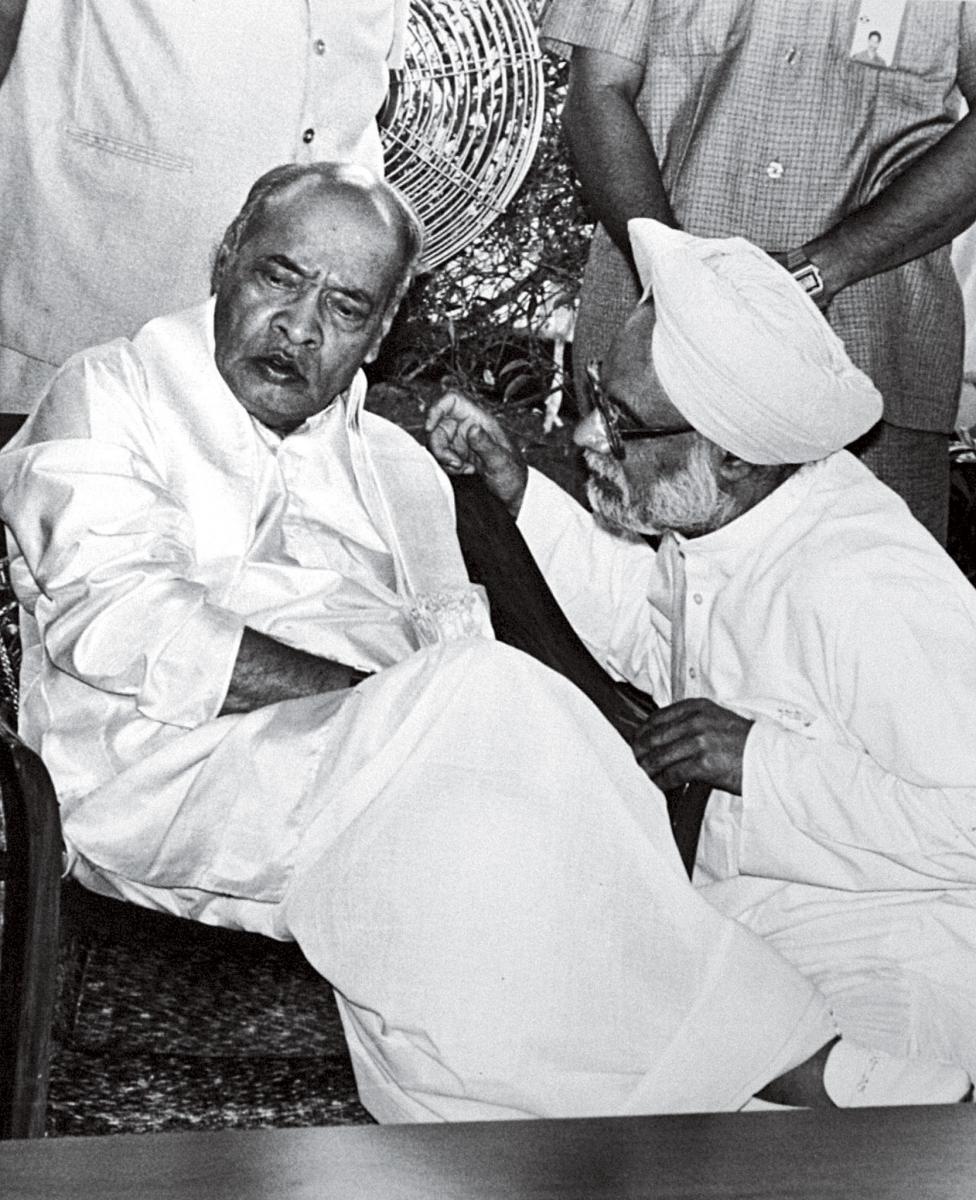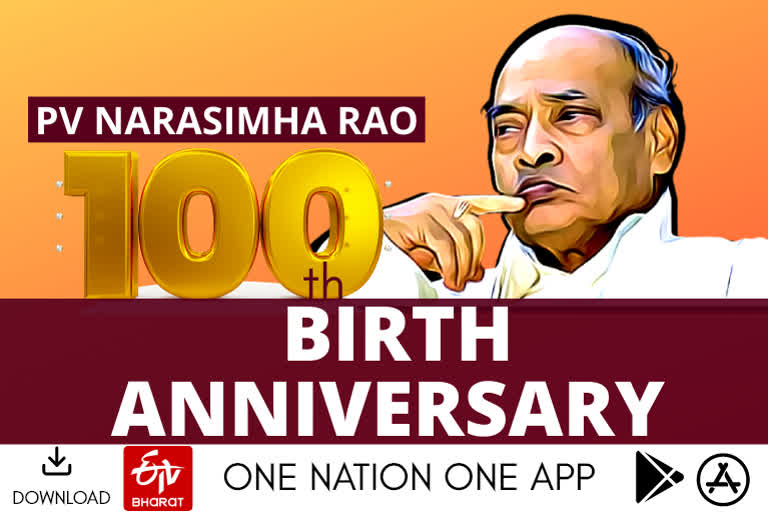Hyderabad: The year 1991 was a tumultuous phase in India's history. Prime Minister Rajiv Gandhi was assassinated during an election campaign in Sriperumbudur in Tamil Nadu leaving the party almost in a vacuum state. The next heir apparent Sonia Gandhi declined the offer to become a successor on the insistence of Rahul Gandhi. Amid the great political churning over who would carry the mantle to become the next PM, discussions veered around the 10 Janpath zeroing in a few names. There were leaders who were close to the Gandhis, then there were Congress veterans/caucuses who wanted to push their preferred candidates. After weeks of deliberations Sonia Gandhi picked PV Narasimha Rao, an astute Congress politician who held several key positions during PMs Indira Gandhi as well as Rajiv Gandhi, to be India's next PM in March 1992. This is the first time anybody other than the Gandhi family had become the Prime Minister and completed a full term.
Born on 28 June 1921 in Karimnagar to a brahmin family, PV, as he's affectionately called, took part in India's freedom struggle and became a full time Congress member, and like most during the time, was deeply influenced by the ideals of Gandhi, Nehru and Lal Bahadur Sashtri. After completing studies he along with his cousin edited a Telugu weekly magazine Kakatiya Patrika in 1940s, and penned critical articles on social and political issues. He took a plunge in Andhra Pradesh politics in 1957, and went on to become its chief minister in 1971. It was in the latter part of his political career that he became closely associated with Mrs Indira Gandhi, so much so that he backed her move when she formed her own Congress Party in 1969.
For PV, it was not easy to carry on the most coveted mantle. The Congress caucus had an inherent dislike of PV, and did everything to topple him. In the initial days, some of the senior most cabinet ministers — Arjun Singh, Sharad Pawar and ND Tiwari — were hatching a plot to oust him, but then PV was no novice to Kiplingesque politics of the Congress. It was not easy to stand up the pack, but PV silenced his detractors and gave them a taste in their own medicine and eventually made them fall in line. PV had multiple battles at hand: economic crisis, internal security, Kashmir, violent insurgencies as well as external threats.
Also Read: PM Modi pays tributes to Rao
In Half-Lion: How PV Narasimha Rao Transformed India, Princeton University scholar Vinay Sitapati writes that despite being unloved by his people, mistrusted by his party, and ruling under the shadow of 10 Janpath, PV transformed the economy and ushered India into the global arena. He was an astute politician to the core. He acknowledged talents and didn't hesitate in breaking conventions. while appointing a non-political economist Manmohan Singh as the Finance Minister (later Singh went on to become the prime minister), appointed Subramanian Swamy, an opposition party member as the Chairman of the Commission on Labour Standards and International Trade and sent opposition leader Atal Bihari Vajpayee, to represent India in a UN meeting at Geneva.

Despite the progress made by India during his tenure, Congress lost the 1996 general elections. Sonia Gandhi's supporters who were laying low became animated and forced PV to step down as party president. In his post-retirement from national politics, he published The Insider that chronicled a man's rise through the ranks of Indian politics, resembling events from PV's own life.
PV suffered a heart attack on 9 December 2004, and was taken to the All India Institute of Medical Sciences where he died 14 days later at the age of 83. He was a reformer, educationist, scholar, conversant in 15 languages and known for his intellectual contribution.



